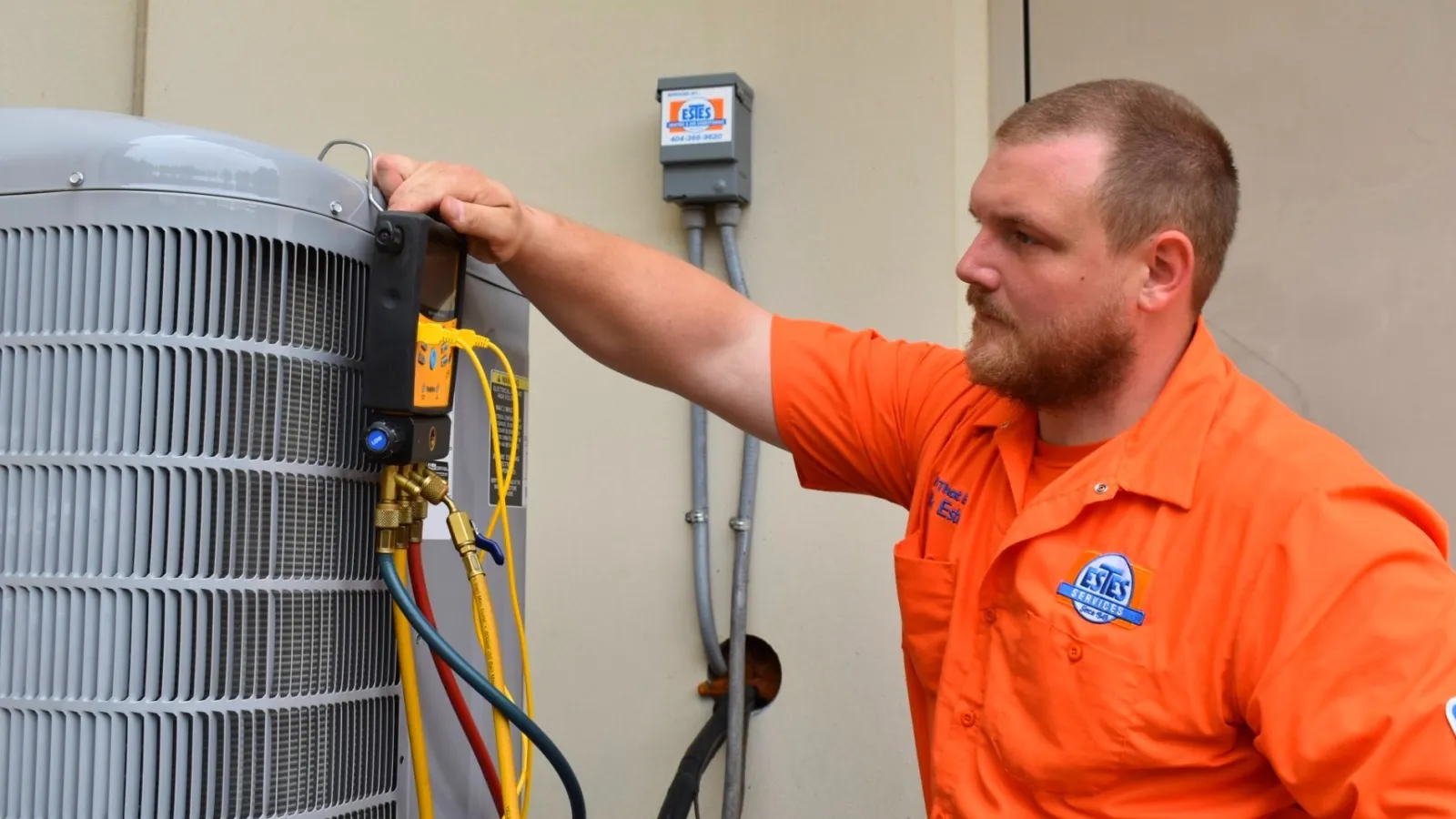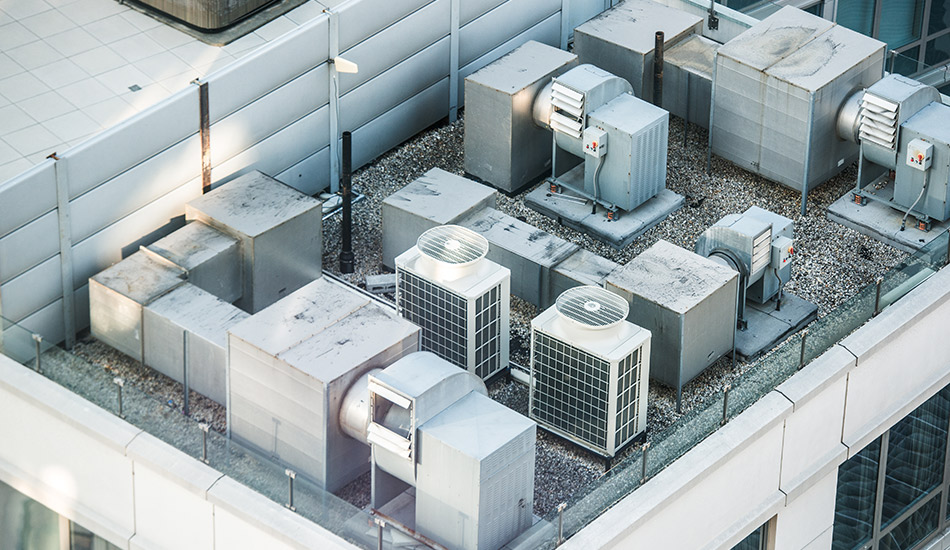Choosing Between a Warmth Pump and Furnace: Trick Factors To Consider for Your HVAC Needs
When assessing home heating choices for heating and cooling needs, the decision between a warm pump and a heater can be intricate. Each system provides distinct advantages tailored to particular climates and energy efficiency goals. Comprehending these differences is vital for making an enlightened choice. Trick factors such as installation costs and environmental influence further make complex the selection procedure. Which option truly aligns with one's comfort and sustainability choices? The following areas will certainly explore these factors to consider thoroughly.
Recognizing Heat Pumps: How They Work and Their Advantages
While lots of house owners think about numerous home heating options, recognizing how heatpump feature and their benefits can significantly affect their choice. Warm pumps operate by transferring warmth as opposed to generating it. In the winter months, they draw out warm from the outdoors air or ground and move it indoors, while in the summertime, they reverse this procedure, cooling the home by getting rid of warmth outside. This twin functionality makes them versatile for year-round climate control.One of the main advantages of heat pumps is their energy performance. They use substantially less power contrasted to typical heating unit, possibly causing lower energy expenses (heat pump replacement ooltewah tn). Furthermore, heatpump have a smaller sized carbon impact, making them an eco-friendly option. They additionally need less maintenance than traditional systems, contributing to long-lasting cost savings. In general, comprehending the auto mechanics and advantages of heat pumps can help home owners make educated choices concerning their heating and cooling down demands
Discovering Furnaces: Kinds, Operation, and Advantages
Heaters come in various kinds, consisting of gas, electric, and oil models, each with distinctive functional systems. Understanding these distinctions is crucial, as they influence effectiveness and home heating efficiency. In addition, heating systems use various advantages, such as regular warm result and dependability in chillier climates.
Kinds of Furnaces
Furnace can differ significantly in style and operation, with furnaces being a preferred option among property owners. There are several types of furnaces, each using various gas resources and technologies. Gas heating systems are common, leveraging all-natural gas to create heat successfully. Electric furnaces, on the other hand, make use of electrical resistance to produce warmth, commonly favored for their uncomplicated setup. Oil heaters, while much less usual, are efficient in areas with minimal gas access (ductless mini splits). In addition, condensing heaters optimize power effectiveness by recycling and recording exhaust gases. Each type operates through a system of heat exchangers and ductwork to disperse cozy air throughout a home. Understanding the differences between these heating system kinds is vital for educated heating and cooling choices
Advantages of Heating systems
For home owners seeking trustworthy warmth during cool months, the advantages of furnaces are substantial. Furnaces offer constant home heating, ensuring even temperature levels throughout the home. They are specifically efficient in severe cool, commonly surpassing heatpump in icy conditions. Numerous kinds, consisting of gas, electric, and oil heaters, offer adaptability to meet diverse needs and preferences.Furnaces also often tend to have reduced first installment prices compared to heat pumps, making them a more available choice for numerous. Their robust design contributes to a much longer life expectancy, with many systems lasting over 15 years with correct upkeep. Additionally, contemporary furnaces are frequently outfitted with innovative modern technology for enhanced efficiency, which can cause minimized energy costs. On the whole, heating systems stay a trustworthy option for efficient home heating.

Power Performance: Comparing Heat Pumps and Furnaces
When contrasting energy efficiency between warmth pumps and furnaces, the Seasonal Energy Effectiveness Ratio (SEER) plays a crucial function in identifying efficiency. Additionally, a functional price analysis exposes the long-term economic effects of each system. Understanding these elements can lead property owners in making educated choices about their home heating remedies.
Seasonal Power Efficiency Proportion
Power performance plays a vital duty in the decision-making procedure in between warmth pumps and heating systems, specifically when taking into consideration the Seasonal Power Performance Proportion (SEER) This statistics procedures the cooling performance of heat pumps over an entire air conditioning season, supplying a standard method to evaluate performance. Greater SEER rankings show greater power performance, equating to reduced power intake and decreased utility bills. In contrast, furnaces are normally examined utilizing the Yearly Gas Use Effectiveness (AFUE) score, which reflects home heating performance. When contrasting these 2 systems, home owners ought to focus on SEER rankings for heatpump, as they directly influence overall energy cost savings and environmental sustainability. An extensive understanding of SEER can significantly influence the lasting fulfillment and cost-effectiveness of the selected heating and cooling service.
Functional Cost Analysis
Recognizing the operational prices related to heatpump and heaters is vital for home owners examining their options. Heatpump commonly use higher power effectiveness, transforming electric energy right into warm with marginal waste. This results in reduced regular monthly utility expenses, especially in modest climates. Conversely, conventional heating systems, particularly gas versions, might have reduced upfront costs yet can incur higher functional costs over time because of sustain prices and effectiveness ratings.Moreover, heatpump can work as both home heating and cooling systems, possibly reducing the demand for separate cooling and heating units. While first investments for warmth pumps might be greater, their long-lasting financial savings in energy efficiency can make them a much more cost-effective option for several families. Mindful evaluation of local power prices is necessary to figure out the best choice.
Installment Prices: What to Anticipate for every Heater
Setup expenses you could try these out for furnace can differ substantially between warm pumps and heaters, affecting home owners' decisions. Heatpump generally have greater ahead of time installation costs, generally varying from $3,500 to $8,000, depending on the system size and intricacy of setup. This consists of the exterior unit, indoor handling system, and required ductwork modifications. Conversely, heaters tend to have reduced first costs, averaging in between $2,500 and $6,000, which can be appealing for budget-conscious home owners. However, installation expenditures can increase if comprehensive ductwork is required.Moreover, the option of fuel kind for heating systems-- natural gas, propane, or electrical-- can likewise affect installment expenses. While heatpump offer power effectiveness, their initial investment may hinder some purchasers. Inevitably, evaluating setup costs alongside lasting financial savings and performance will certainly assist property owners in making educated choices about their furnace.
Environment Considerations: Which System Carries Out Much Better in Your Location
How do environment conditions affect the performance of heater? The efficiency of warm pumps and furnaces can differ substantially depending on the neighborhood climate. In modest environments, heatpump stand out by efficiently moving warm from the outdoors air, making them an energy-saving option. Their efficiency reduces in very cold temperatures, where they might have a hard time to draw out adequate warmth. Conversely, heaters, specifically gas models, provide regular and trusted warmth no matter of outdoor conditions, making them better in cooler regions.In locations that experience milder winter seasons, heatpump can run properly year-round, offering both cooling and heating. On the other hand, areas with extreme winters months frequently gain from the toughness of heaters. Inevitably, understanding the neighborhood climate is essential when making a decision between a warmth pump and a heater, as it directly affects their operational performance and overall performance.
Upkeep Demands: Long-Term Look After Heat Pumps vs. Furnaces
While both warm pumps and heating systems call for regular upkeep to assure peak performance, their specific demands and treatment routines vary significantly. Heaters usually require much less constant focus, with yearly inspections sufficing to check for gas leakages, clean filters, and assess total performance. Their less complex design usually permits straightforward repairs.In contrast, heat pumps require biannual upkeep due to their double role in heating & cooling. This includes cleaning coils, examining cooling agent levels, and making certain that both the indoor and outdoor devices work at their best. In addition, heatpump maintenance frequently entails more elaborate elements, making expert maintenance essential.Neglecting maintenance can result in reduced performance and increased energy expenses for both systems. Inevitably, property owners need to consider these lasting treatment requirements when choosing in between a warm pump and a heater, as proactive maintenance can expand the lifespan and efficiency of either system considerably.
Environmental Effect: Picking a Sustainable Home Heating Option
The ecological effect of heater is an important assessment for home owners seeking sustainable options. Heatpump are usually a lot more energy-efficient than conventional heaters, as they move warmth as opposed to create it, significantly minimizing carbon exhausts. By using eco-friendly energy sources, such as geothermal or air-source heatpump, home owners can further lessen their ecological footprint.On the various other hand, gas heating systems discharge greenhouse gases and contribute to air pollution, though they frequently offer higher warmth result. Nonetheless, innovations in innovation have led to the development of high-efficiency heaters that minimize emissions.Ultimately, selecting a heating unit includes weighing effectiveness against ecological impact. Homeowners are urged to review neighborhood power sources and motivations for eco-friendly systems, making sure a choice that straightens with both personal comfort and ecological responsibility. The decision influences not only prompt convenience yet also lasting sustainability and environmental wellness.
Often Asked Questions
For How Long Do Heat Pumps and Furnaces Generally Last?
The life-span of heatpump commonly ranges from 15 to two decades, while furnaces can last between 15 to three decades. Regular maintenance substantially impacts their longevity and effectiveness in giving home heating solutions.
Can I Use a Heatpump in Exceptionally Cold Climates?
Warmth pumps can operate in very cold climates, yet their efficiency lessens as temperatures decline. In such problems, additional home heating sources may be needed to preserve comfy interior temperatures and guarantee peak efficiency.

What Is the Noise Level of Warmth Pumps Versus Furnaces?
The noise levels of warmth pumps and heating systems vary substantially. Usually, warm pumps operate even more quietly than conventional furnaces, making them better for those conscious appear, while heating systems may generate louder functional noises during home heating cycles.
Are Warm Pumps Suitable for Both Heating & Cooling?
Heatpump are indeed appropriate for both cooling see this here and heating (heat pump replacement ooltewah tn). They work by moving heat, giving effective temperature control year-round, making them a versatile option for homeowners looking for an all-in-one a/c option
What Size Heater Do I Required for My Home?
Figuring out the suitable dimension furnace for a home requires reviewing elements such as square video, insulation quality, neighborhood climate, and the home's design. Consulting a specialist can guarantee a precise analysis and perfect convenience. Warmth pumps usually offer higher energy performance, converting electric energy official source right into heat with very little waste. In moderate environments, warm pumps stand out by successfully moving heat from the outside air, making them an energy-saving choice. Alternatively, heating systems, particularly gas models, supply reputable and regular warm regardless of outside conditions, making them more effective in chillier regions.In locations that experience milder winters, heat pumps can operate effectively year-round, supplying both home heating and air conditioning. Warmth pumps are generally a lot more energy-efficient than traditional heaters, as they move warmth instead than create it, substantially reducing carbon emissions. By using renewable power resources, such as air-source or geothermal warmth pumps, home owners can further lessen their ecological footprint.On the various other hand, all-natural gas furnaces produce greenhouse gases and contribute to air contamination, though they often provide greater warm outcome.